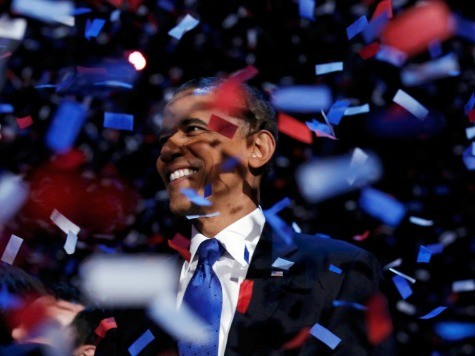The American media are the biggest losers in the latest revelations in the National Security Agency scandal. Not because domestic journalists could have been expected to discover closely-guarded state secrets such as a spy program that targeted foreign heads of state (still less to reveal it, if they did not). Rather, the U.S. media’s lack of interest in holding the Obama administration accountable is being exposed by the foreign press.
The fact that White House officials can tell the media that he did not know–yet again–about a major problem in his administration, and the press and the politicians meekly accept that alibi (with some exceptions) reveals a level of political collaboration that is unusual in an open society with a free press. Journalists in many other western countries do not feel the same need to protect leaders–not their own, and certainly not ours.
While many in the American media would prefer to let the NSA scandal go, just as they have all the other scandals, the foreign media will not. The NSA scandal is as much a domestic story to them as a foreign one. It also reinforces common themes in foreign coverage of the U.S., such as the ever-popular idea that our security agencies run the world, or that America is governed by a shadowy cabal well beyond political control.
Foreign journalists are not, like their American counterparts, cadging for a better seat at the White House Briefing Room or a future spot in the Obama administration. In many countries, like Britain, they are more skeptical of government and politicians to begin with than our own Democrat-dominated press. The NSA scandal offers them a rare chance to combine investigative journalism with standing up for national pride.
Just how low our media have fallen is evident in the way U.S. journalists feel compelled to flatter the Obama administration when criticizing it. For example, Lara Logan’s investigation of the Benghazi scandal on CBS News’ 60 Minutes last Sunday went some way towards atoning for CBS’s role in covering up the story during the election. Yet it still failed to mention President Barack Obama or former Secretary of State Hillary Clinton.
Even Ed Henry of Fox News, the boldest of the White House correspondents, feels the need to soft-pedal. In taking the White House to task Monday for the lie that Americans who liked their insurance could keep it under Obamacare, he still tried to flatter the administration by opining that patients “will, admittedly wind up, probably, with better insurance in the long run, so they may be healthier. That should be said.” (Why?)
Foreign journalists from the thirty-five nations whose leaders the U.S. is alleged to have spied upon will not offer the same bouquets when asking their questions. And in the absence of direct access to the White House, they will assume and report the worst–that President Obama is either a rogue leader who is lying about his knowledge of the NSA program, or that he is completely incapable of governing. (Or both.)
Until now, it has been almost impossible to shame the U.S. media into doing their job. When alternative media, such as Fox News, conservative sites, or even left-wing publications produce scoops, their work is dismissed as advocacy journalism, and often ignored. That will be harder with the foreign press on the trail of the NSA scandal. The U.S. media may finally, reluctantly, be forced to acknowledge (some of) Obama’s flaws.
This article has been updated to credit the Los Angeles Times with questioning the administration’s claim that the president did not know about NSA spying on foreign leaders.

COMMENTS
Please let us know if you're having issues with commenting.